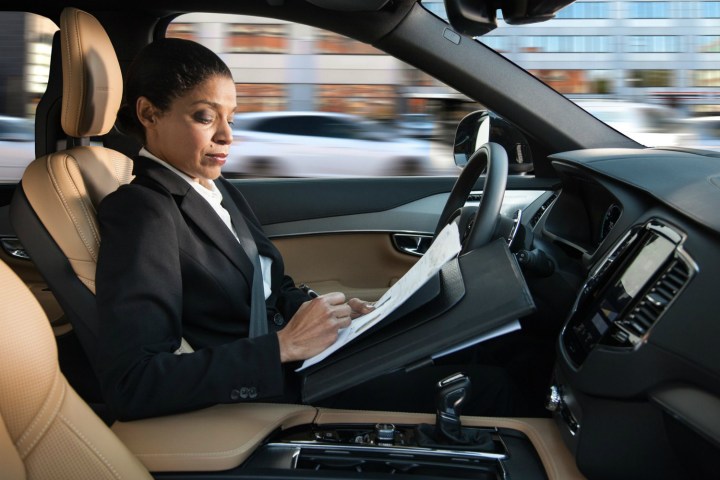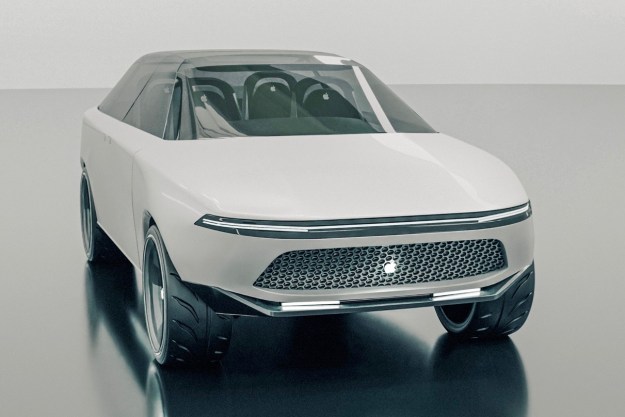
The Swedish automaker already has its autonomous vehicles tootling along the streets of its home city of Gothenburg, and recently announced plans to test the cars in a number of Chinese cities, too.
As with the Swedish and Chinese schemes, Volvo plans to supply 100 London families with an XC90 SUV equipped with its very latest self-driving technology.
The families will test the cars on regular London streets in everyday conditions, a prospect that should provide comfort to any nervous riders among the test group as the average speed on the city’s congested roads is currently a mere 14.8 mph. The trial means that whoever usually drives will be able to do other things while traveling from A to B, such as working on their laptop, reading a book, or, if they have kids, breaking up a dispute in the back.
The cars’ on-board computers will provide Volvo with data that it’ll use to further develop its autonomous car technology. Routes will be pre-determined by the company in collaboration with each family, and is likely to include a mix of fast and slow roads to ensure the technology is properly put through its paces.
Volvo says the tests will pave the way for a revolution on roads in Britain and beyond in four key areas: safety, congestion, pollution, and time saving.
“Autonomous driving represents a leap forward in car safety,” Håkan Samuelsson, Volvo’s president and chief executive, said in a release. “The sooner [self-driving] cars are on the roads, the sooner lives will start being saved.” Indeed, the company claims that by 2020 no one will be seriously injured or killed in one of its cars.
Volvo’s London-based Drive Me program is expected to start in early 2017 using a limited number of semi-autonomous cars before expanding the following year to 100 fully autonomous vehicles, “making it the largest and most extensive [self-driving] testing programme on Britain’s streets,” the company said Tuesday.
Volvo says it currently has no plans to conduct similar tests in the U.S. Addressing officials last year, Samuelsson urged the government to make it easier to trial self-driving technology on regular U.S roads.
“The absence of one set of rules means car makers cannot conduct credible tests to develop cars that meet all the different guidelines of all 50 U.S. states,” the CEO said, adding, “If we are to ensure a smooth transition to autonomous mobility then together we must create the necessary framework that will support this.”
Editors' Recommendations
- Tesla Autopilot vs. full self-driving: What’s the difference?
- Cruise autonomous vehicle drives over woman just after she was hit by another car
- An autonomous car in San Francisco got stuck in wet concrete
- Volkswagen is launching its own self-driving car testing program in the U.S.
- Starting under $40K, Volvo’s compact EX30 will be its most affordable EV, and its fastest


